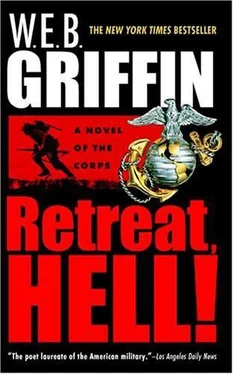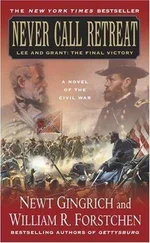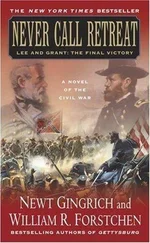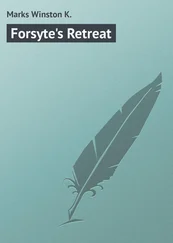Church replied that it was.
The "high-ranking officer" turned out to be General of the Army Douglas MacArthur, who took a quick look around, then radioed the Pentagon that U.S. troops were going to be necessary.
While this was going on, the United Nations, realizing that the North Koreans had no intention of obeying the UN resolution to cease, desist, and get out of South Korea, issued — on 27 June — another one:
". . . recommends that the members of the UN furnish such assistance to the Republic of Korea as may be necessary to repel the armed attack. ..."
Resisting the Communist attack would be an action of the United Nations, rather than a unilateral action by the United States.
Just before 0500 30 June, President Truman got MacArthur's assessment of the Korean situation and his request for authorization to use American ground troops. Truman immediately authorized the deployment of one regimental combat team, and after thinking it over for two hours, authorized the deployment of two infantry divisions.
At 0800 1 July "Task Force Smith" — 400 officers and men from the 21st Infantry, 24th Infantry Division, under Lieutenant Colonel Charles B. Smith — boarded USAF C-54 transports at Itazuke Air Force Base in Japan and were flown to Korea-It was not the regimental combat team Truman had authorized. It was all the men the 24th Division could muster on short notice.
On the morning of 5 July, "Task Force Smith" was in place on the Suwon—Osan Highway, south of Suwon. The "crew-served" weapons with which it was supposed to halt the North Korean Army consisted of two 75-mm recoilless rifles; two 4.2-inch mortars; six 2.36-inch rocket launchers; and four 60-mm mortars. The 52nd Field Artillery — six light 105-mm howitzers — had been assigned to them.
When the North Koreans' Russian-built T-34 tanks attacked, they were engaged by Task Force Smith's 75-mm recoilless rifles. The projectiles bounced off the Russian armor. So did the 2.36-inch rockets. So did the shells from the 105-mm howitzers.
On the morning of 6July, Colonel Smith was able to muster only 248 officers and men of the original 400. The artillery had lost five officers and twenty-six men and most of its cannon.
And they had managed to delay — not stop — the North Koreans for less than seven hours.
More troops were going to be needed, and quickly. The problem was, there were no more troops.
The Marine Corps was ordered to furnish a division. There were two Marine divisions: The First, in California, was at less than half wartime strength, and the Second, on the East Coast, was in even worse shape. At Headquarters, USMC, Major Drew J. Barrett, Jr. ( Barrett was an infantryman who began his combat service with the Marines as a lieutenant on the beaches or Guadalcanal. "The Corps" is dedicated to his son, Second Lieutenant Drew J. Barrett III, UoMC, who was fatally wounded in Vietnam while serving with the 26th Marines, then in combat beside the 9th Marines, which was commanded by his father. While commanding the 9th, Barrett chose a young officer to command one of its companies, making him the first black officer ever to command Marines in combat. In May 2003, as this book was being written, that officer, later Major General and Ambassador Gary Cooper, attended Colonel Barrett's funeral, at which Marines of the 1st Force Recon, m dress blues, rendered full military honors and Barrett's remains were covered with the National Colors he had flown at Khe Sanh.) a junior G-l staff officer, marched into the office of the Commandant of the Marine Corps to report that there was no way the Corps could meet the requirements laid on it by the Commander-in-Chief except by mobilizing the entire reserve. This was done.
The Eighth Army, under General Walton H. "Johnny" Walker, who had served with distinction under Patton in Europe, began a series of delaying actions — in other words, retreated — down the Korean Peninsula.
On 4 August, the Pusan Perimeter was established. This was a small enclave at the tip of the peninsula. The alternative to the perimeter was being pushed into the sea.
Reinforcements began to arrive from Japan, Hawaii, and the continental United States. By gutting the 2nd Marine Division on the East Coast, the Marine Corps was able to form from the 1st Marine Division the First Marine Brigade (Provisional) and send it to Korea.
General Walker immediately made the Marines his "Fire Brigade," moving it around within the perimeter to reinforce whatever Army units seemed most vulnerable to the continuing North Korean attack.
MacArthur, meanwhile — while there was still genuine doubt that Walker could hold the Pusan Perimeter — was planning a counterattack. He was later to claim he'd first thought of it when he'd made his first quick visit to Korea.
It is a matter of record that MacArthur, in early July, had ordered his chief of staff, Major General Edward M. Almond, to plan for a landing on the west coast of the peninsula.
When he finally revealed his plan — to make an amphibious landing at Inchon, the port near Seoul — it was greeted with reactions ranging from "grave doubts" to mutters of "absolute insanity" from just about every senior officer made privy to it.
It was the worst possible place to stage an amphibious landing. There was a long list of things wrong with the plan, primarily the "landing beach" itself.
To get to the "landing beach" the invasion fleet would have to navigate the narrow Flying Fish Channel, which was not navigable except at high tide, and then only for two hours. When the thirty-plus-foot tides receded, the landing area was a sea of mud.
There was no beach. Men would have to climb a seawall when they left their landing barges.
Army Chief of Staff Collins sent General Matthew B. Ridgway, recognized as one of the brightest officers in the Army, to Tokyo to "confer" with MacArthur about the Inchon plan. Everyone understood that Ridgway's mission was to talk MacArthur out of his plan.
He failed to do so.
President Truman was faced with the choice of listening to the senior officers in the Pentagon, who wanted him to forbid the operation, or letting MacArthur have his way.
Political considerations certainly influenced Truman to some degree. It was a given that if Truman supported the Pentagon and forbade the invasion, MacArthur would logically conclude that the President had no faith in him, and retire.
If he did so quietly, fine. But that was unlikely. It was more likely that the "firing" ° of the legendary national hero would see MacArthur as the Republican candidate in the upcoming presidential election.
Whatever the reasons, Truman decided not to interfere with MacArthur's plan to invade at Inchon on 15 September.
MacArthur gave command of the invasion force — X Corps — to Major General Ned Almond. He did not, however, relieve Almond of his assignment as his chief of staff. While this was perfectly legal, and certainly MacArthur's prerogative, the Pentagon establishment was outraged.
Some of their rage, MacArthur's supporters claimed, was because they could not now give MacArthur a chief of staff who could be counted on to provide them a window into MacArthur's thinking.
Eighth Army Commander Walker bitterly protested the loss of the Marines to X Corps. He said he could not guarantee holding the Pusan Perimeter without them. MacArthur was unmoved. The First Marine Brigade (Provisional) came off the lines in Pusan, boarded the ships of the invasion fleet, and en route to Inchon, reinforced at sea by a third regiment, became the 1st Marine Division.
Читать дальше












